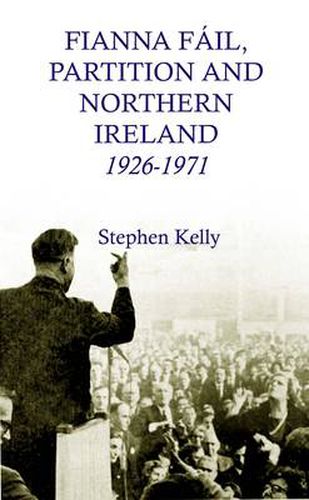Readings Newsletter
Become a Readings Member to make your shopping experience even easier.
Sign in or sign up for free!
You’re not far away from qualifying for FREE standard shipping within Australia
You’ve qualified for FREE standard shipping within Australia
The cart is loading…






When the Troubles broke out in Northern Ireland in the late 1960s, the Irish political party Fianna Fail was hopelessly ill-prepared for the ensuing crisis. Between the emotive years of 1969 to 1971, Fianna Fail was brought face to face with one of its most blatant contradictions: the gap between the party’s habitual pronouncements of its desire for a united Ireland and the reality that the party could offer no practical solutions to deliver this objective. Why had this gap developed? This question and many more are answered in this book, tracing the historical reasons for why Fianna Fail failed to devise a realistic and long-term Northern Ireland policy from 1926 to 1971. As violence engulfed Northern Ireland by the late 1960s, the book explains why so many within Fianna Fail believed that the use of physical force represented official Irish government policy. It also analyzes Fianna Fail’s relationship with Ulster Unionism and northern Nationalism, exposing the party’s long held apathy for both political movements. Significantly, the book is an examination of Fianna Fail’s attitude to partition and Northern Ireland, from cabinet level to the party’s rank and file.
$9.00 standard shipping within Australia
FREE standard shipping within Australia for orders over $100.00
Express & International shipping calculated at checkout
When the Troubles broke out in Northern Ireland in the late 1960s, the Irish political party Fianna Fail was hopelessly ill-prepared for the ensuing crisis. Between the emotive years of 1969 to 1971, Fianna Fail was brought face to face with one of its most blatant contradictions: the gap between the party’s habitual pronouncements of its desire for a united Ireland and the reality that the party could offer no practical solutions to deliver this objective. Why had this gap developed? This question and many more are answered in this book, tracing the historical reasons for why Fianna Fail failed to devise a realistic and long-term Northern Ireland policy from 1926 to 1971. As violence engulfed Northern Ireland by the late 1960s, the book explains why so many within Fianna Fail believed that the use of physical force represented official Irish government policy. It also analyzes Fianna Fail’s relationship with Ulster Unionism and northern Nationalism, exposing the party’s long held apathy for both political movements. Significantly, the book is an examination of Fianna Fail’s attitude to partition and Northern Ireland, from cabinet level to the party’s rank and file.